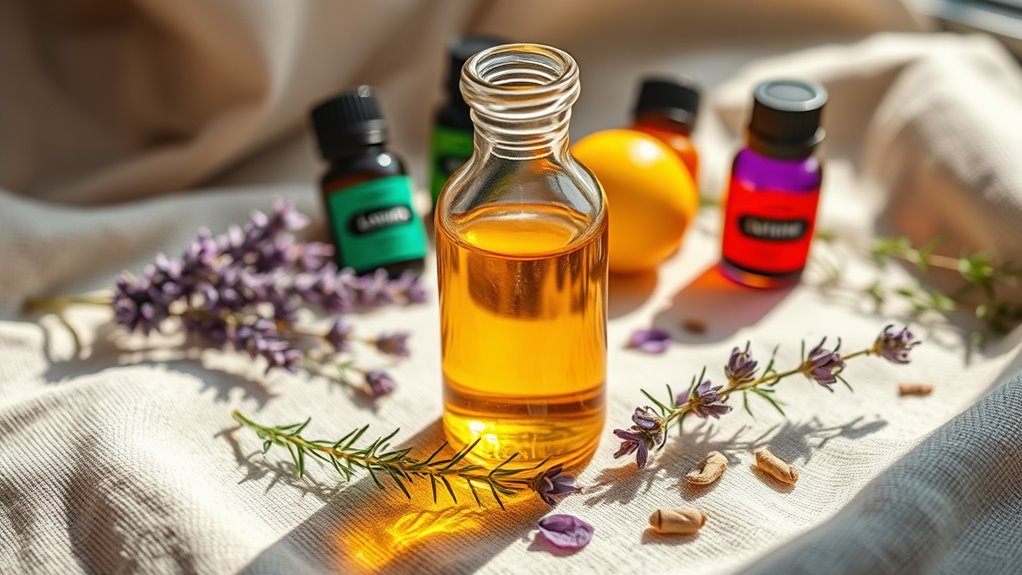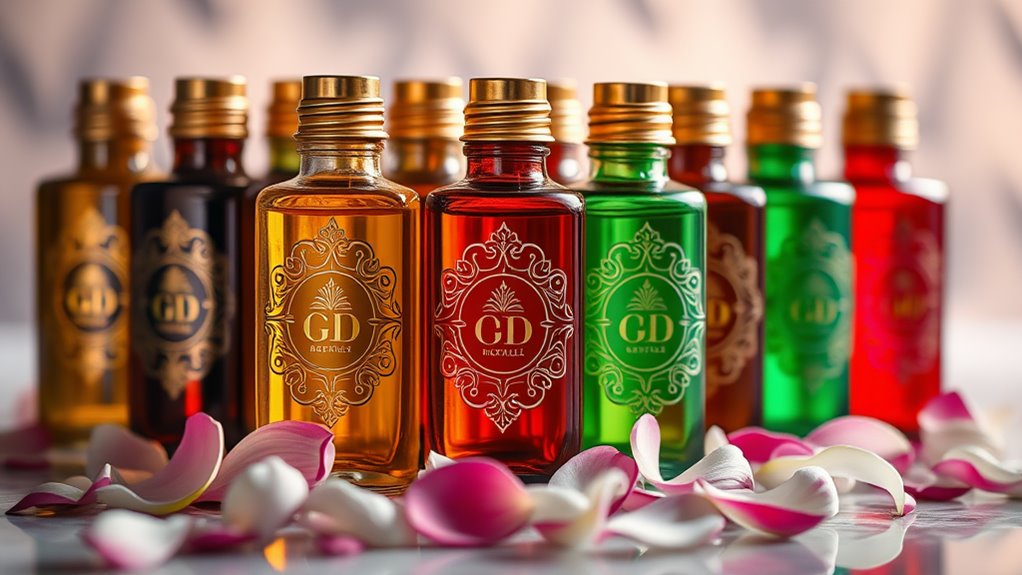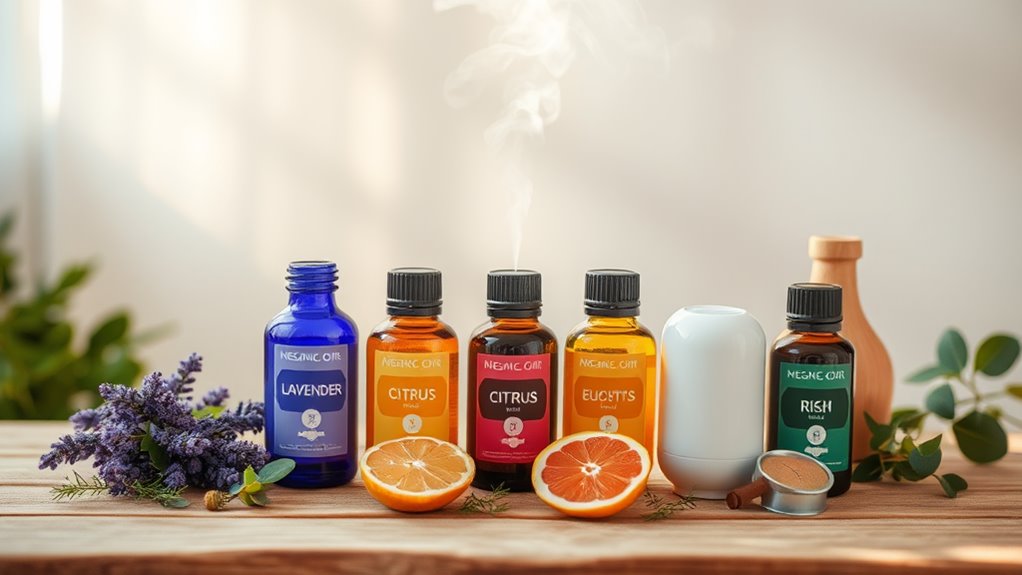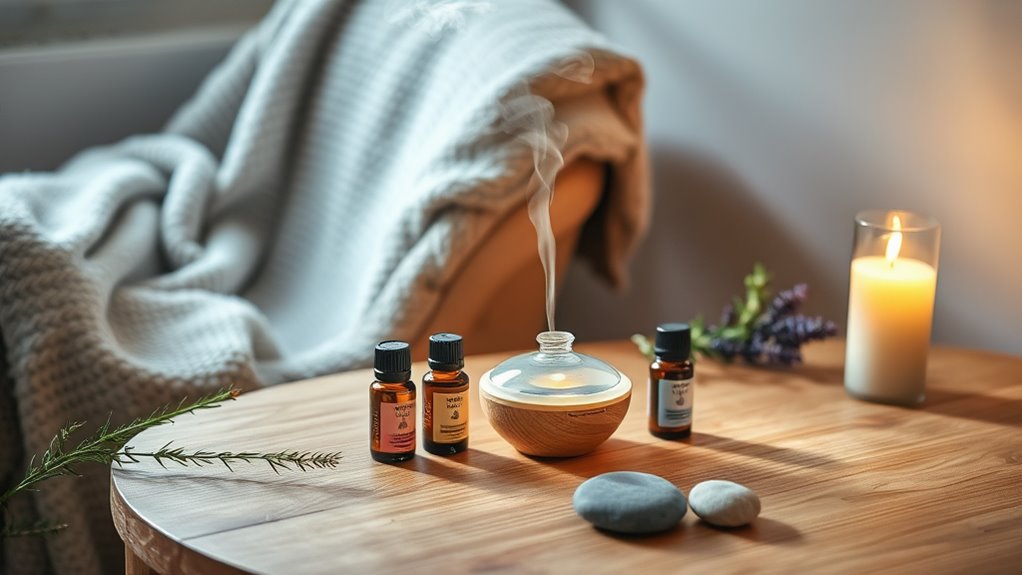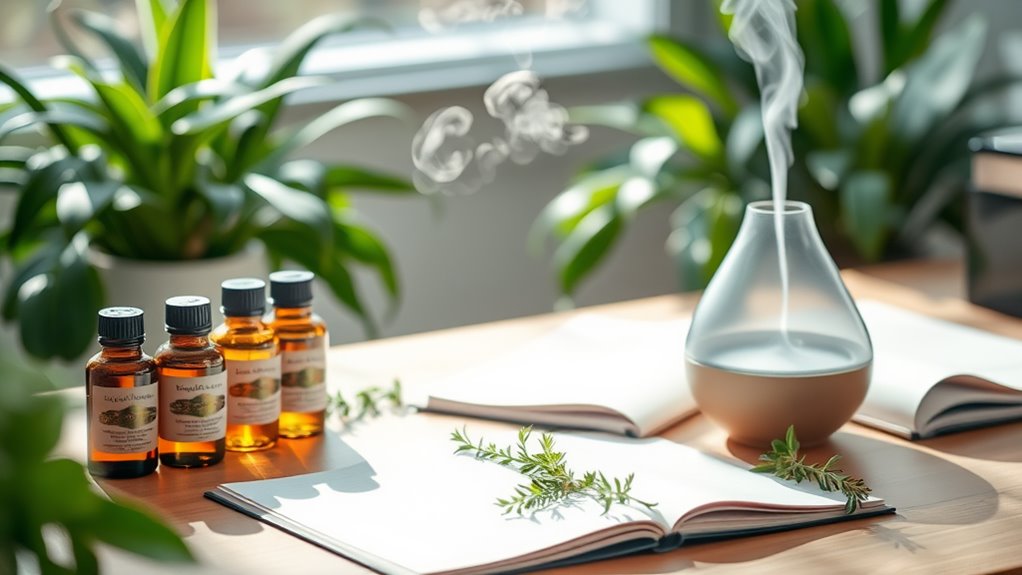Simple DIY Perfume Using Only Essential Oils
Crafting your own perfume using essential oils can be an intriguing journey into scent creation. You’ll discover how to blend various oils to achieve your desired fragrance profile, all while enjoying the therapeutic benefits they offer. From grounding base notes to uplifting top notes, each element plays a crucial role in your unique scent. But before you start mixing, let’s explore the essential oils that will elevate your DIY perfume experience.
Key Takeaways
- Choose essential oils for your perfume, selecting base, heart, and top notes for a balanced scent profile.
- Combine 10-15 drops of each selected essential oil in a clean glass container.
- Add about 2 tablespoons of a carrier oil, like jojoba or sweet almond, to dilute the mixture.
- Seal the container tightly and let it sit in a cool, dark place for at least 48 hours to mature.
- Store your homemade perfume in a cool, dark place and apply to pulse points for best results.
Benefits of Using Essential Oils in Perfume
Using essential oils in your DIY perfume offers a multitude of benefits that can elevate your fragrance experience.
First, these oils provide rich, natural aromas that synthetic fragrances simply can’t match.
You’ll enjoy the therapeutic properties, enhancing your mood while wearing your essential oil perfume.
Additionally, you can customize your scent, blending oils to create a truly unique fragrance that reflects your personality.
Unlike commercial perfumes, essential oil perfumes are free from harmful chemicals, making them safer for your skin.
Plus, they often last longer, allowing you to enjoy your signature scent throughout the day without frequent reapplication. Moreover, creating your own perfumes with essential oils can help you craft a luxurious home scent that suits your personal style and ambiance.
Essential Oils to Consider for Your DIY Perfume
When crafting your DIY perfume, the choice of essential oils plays a pivotal role in achieving your desired scent profile.
Consider starting with a base note like sandalwood, which adds depth and warmth.
For heart notes, jasmine or rose can introduce floral elegance, while citrus oils like bergamot or sweet orange provide a refreshing top note.
Don’t forget earthy options like patchouli for a grounding effect.
You can also experiment with spicy oils like cinnamon or ginger to create a unique twist.
Blend these oils carefully, balancing their strengths to craft a signature scent that reflects your personality and mood. Additionally, using natural ingredients can enhance the longevity and quality of your fragrance.
Supplies Needed for Your DIY Perfume
Crafting your own perfume is an exciting journey, but it requires the right supplies to bring your fragrant vision to life.
Start with a clean glass container, like a small bottle or a rollerball, to house your creation.
You’ll need a carrier oil, such as jojoba or sweet almond, to dilute the essential oils.
A dropper helps you measure precisely, while a small funnel makes pouring effortless.
Don’t forget a notebook to jot down your formulas and adjustments.
Finally, consider labels to keep track of your blends. Additionally, using essential oils can enhance your overall well-being by providing everyday benefits such as stress relief and mood enhancement.
Gather these essentials, and you’re ready to embark on your aromatic adventure!
Step-by-Step Instructions for Creating Your Perfume
Creating your own perfume involves a few straightforward steps that unlock a world of personalized fragrance.
Start by selecting your essential oils; choose a base, middle, and top note for balance.
In a clean glass bottle, combine 10-15 drops of each oil, adjusting to your scent preference.
Next, add approximately 2 tablespoons of a carrier oil or alcohol to dilute the mixture.
Seal the bottle tightly and shake gently to blend the oils.
Allow your creation to sit in a cool, dark place for at least 48 hours, letting the scents meld beautifully. This resting period is essential for natural home scent development, as it allows the oils to harmonize.
Finally, it’s ready to wear and enjoy!
Tips for Storing and Using Your Homemade Perfume
Proper storage and usage of your homemade perfume can greatly enhance its longevity and fragrance quality.
Keep your bottles in a cool, dark place, away from sunlight and heat, which can degrade essential oils. Use glass containers, as plastic can interact with the oils, altering their scent.
When applying, spritz on pulse points like wrists and behind ears to amplify the fragrance. Avoid rubbing your wrists together; it can crush the scent’s delicate notes.
Lastly, remember to shake gently before use, ensuring the oils blend perfectly. By incorporating essential oils into your routine, you can experience a myriad of wellness benefits. With these tips, you’ll enjoy your bespoke scent longer and in its full glory!

